With billions still excluded from social protection and millions of jobs needed to drive inclusive growth, the call for actionable strategies for financing decent jobs and universal social protection was bold and loud.
The Technical Support Facility of the UN Global Accelerator on Jobs and Social Protection for Just Transitions held a side event titled “Accelerating Investments in Decent Jobs and Social Protection for Sustainable Finance and Social Returns” during the Second Preparatory Committee for the Fourth International Conference on Financing for Development (FfD4). Bringing together governments from Global Accelerator pathfinder countries, development partners, public development banks, social partners, and UN agencies the event underscored the urgent need for integrated financing strategies to close global gaps in social protection and decent job creation.
The ILO Special Representative to the UN, Ms. Cynthia Samuel-Olonjuwon, stressed that this exchange was an opportunity to reaffirm commitments to address financing gaps for decent jobs and social protection, and to identify actionable recommendations to inform the 4th International Conference on Financing for Development.
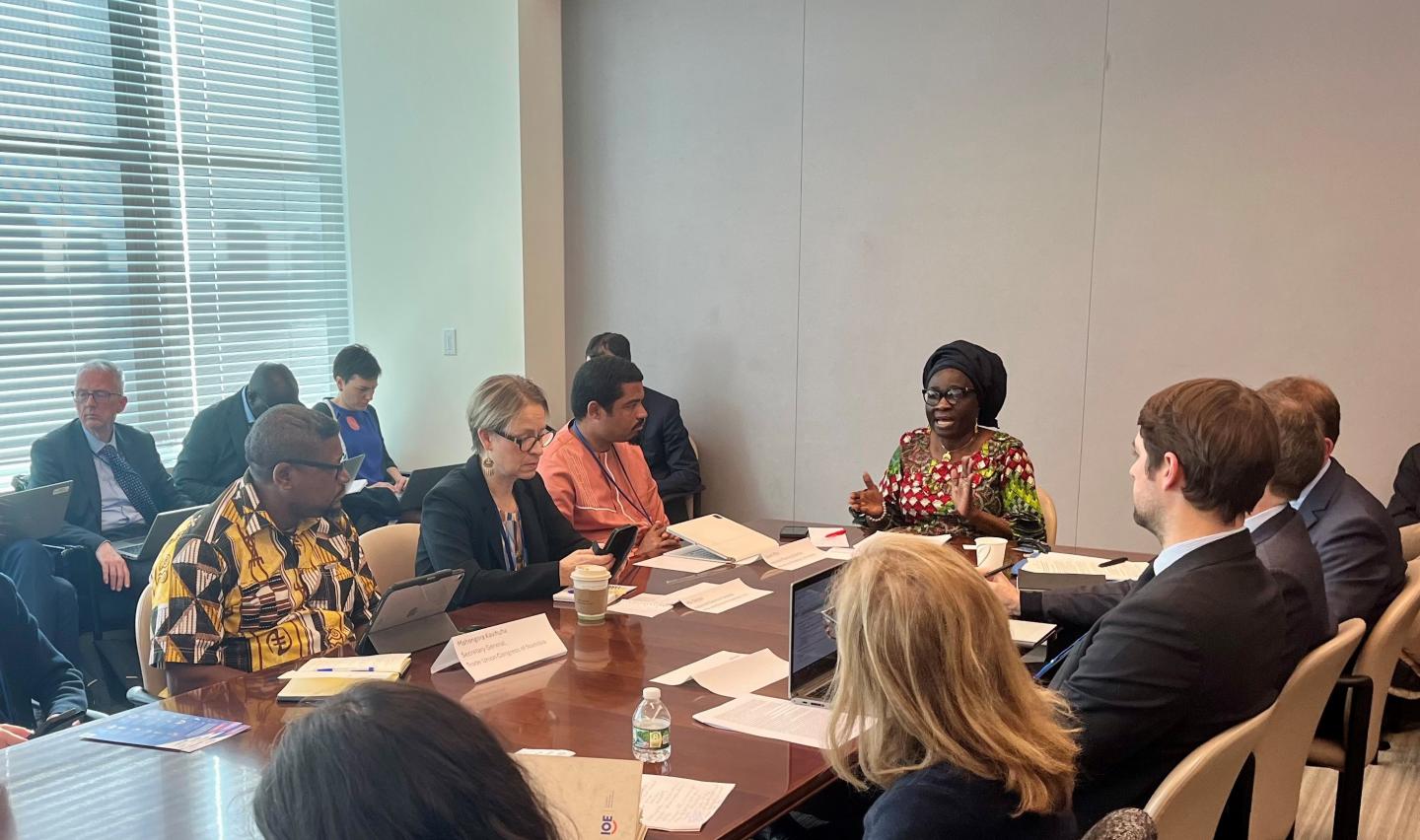
Through a video message, Ms. Kanni Wignaraja, UN Assistant Secretary-General and UNDP Regional Director for Asia and the Pacific, acknowledging the financing divide that hampers progress in social investments, urged participants “not to focus on the constraints, but on what can actually be done,” and highlighted the need to leverage public and private financing, address tax justice, and phase out inefficient subsidies to expand social protection and generate jobs. She emphasized the Global Accelerator as a key initiative to mobilize financing, expand social protection, and generate decent jobs through collective action.
To frame the conversation, Mr. Oliver Schwank, Chief of Policy Analysis and Development at UN DESA, emphasized the importance of anchoring social protection and decent job creation within the broader Financing for Development agenda. Referring to the Addis Ababa Action Agenda (AAAA) as a foundation, he highlighted the need to build on existing commitments while addressing persistent gaps in mobilizing financing for social priorities. “Social protection systems and decent jobs are not only ends in themselves but also critical enablers of sustainable development,” he noted, underscoring their role in stabilizing economies during crises and facilitating structural transformations. Mr. Schwank urged participants to advocate for these priorities in the outcome document of FfD4 to ensure they remain central to global financing frameworks.
Country perspectives: Advancing national commitments through integrated financing
The event showcased the experiences and progress of Global Accelerator pathfinder countries, demonstrating how national roadmaps are advancing integrated strategies to address gaps in social protection and decent job creation. These countries exemplified how targeted investments and innovative financing mechanisms can drive national progress.
From Cabo Verde, Mr. Gilson Pina, National Planning Director at the Ministry of Finance, emphasized the country’s commitment to eradicating extreme poverty through direct income support and training programs for vulnerable families, financed through national resources and innovative tools like social bonds. He explained how they are turning social protection into a tool for empowerment not just to alleviate poverty but also to provide families the means to participate in and benefit from economic development.
Representing Albania, Ms. Olta Manjani, Deputy Minister of Economy, Culture, and Innovation, highlighted their focus on aligning social protection systems with workforce development, addressing skills mismatches, and investing in priority sectors such as tourism and care economy. She underscored Albania’s efforts to mobilize funding through partnerships and innovative financing mechanisms like a National Social Employment Fund to integrate persons with disabilities into the labour market and the development of a National Training Fund to support workforce upskilling in priority economic sectors.
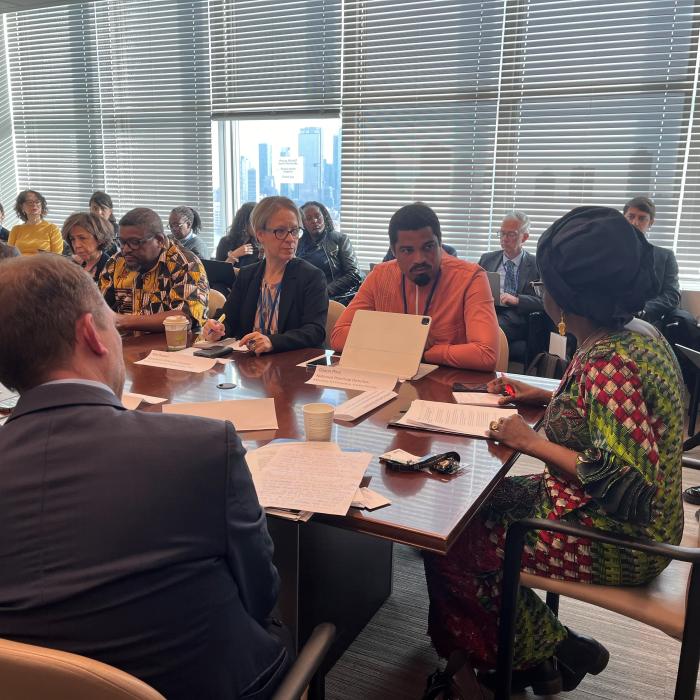
Complementing the experiences shared by Cabo Verde and Albania, Mr. Thomas Beloe, Head of Policy and Programme at UNDP’s Sustainable Finance Hub, highlighted how Integrated National Financing Frameworks (INFFs) can unlock financing for social protection and decent jobs. He shared examples of some other innovative financing solutions such as Armenia’s tax incentives to promote employment, Mongolia’s performance-based budgeting that directed $200 million toward social sectors, and Uzbekistan’s SDG bond, which allocated 44 per cent of its proceeds to social investments.
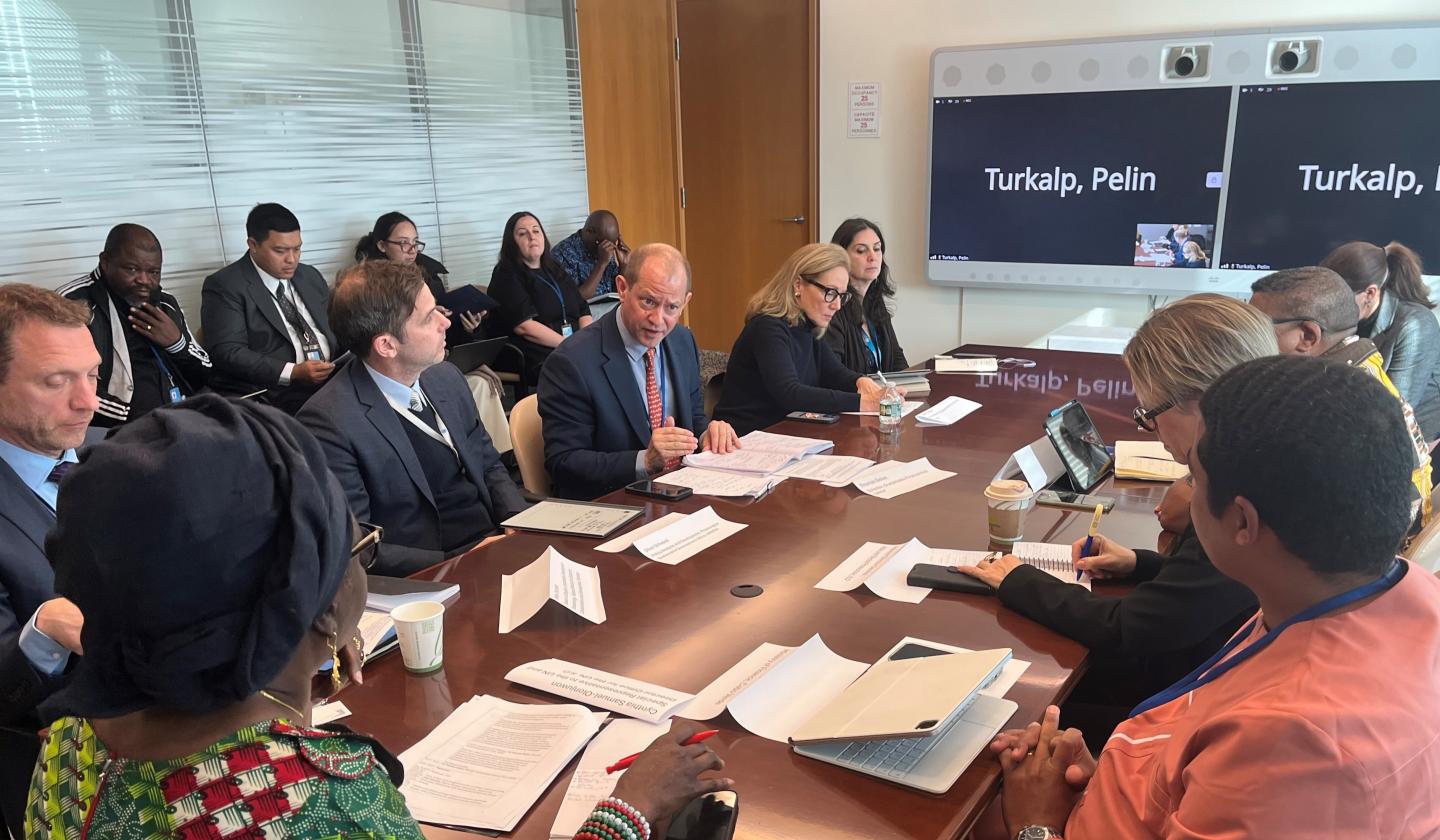
Building on these innovative approaches, Ms. Isabelle Brun, Senior Policy and Partnerships Advisor at the Council of Europe Development Bank and co-lead of the Finance in Common Coalition for Social Investments (FiCS) highlighted the pivotal role of public development banks in aligning financing with national roadmaps, offering further insights into how collaborative efforts can enhance social investments and drive progress toward social protection and decent job creation. Highlighting a country-centred approach, she emphasized the importance of collaboration between PDBs, UN agencies, and governments to deliver effective investments aligned with national priorities. Ms. Brun shared examples where such collaboration is taking shape, including ongoing engagements in Uzbekistan, where PDBs and financial institutions are working with national authorities to identify technical and financial support needs, and Albania, where the Council of Europe Development Bank is exploring opportunities to support the care economy in coordination with the ILO. She also highlighted the coalition’s focus on enhancing social impact measurement to improve investment quality and reporting, encouraging pathfinder countries to widely disseminate their national roadmaps to PDBs to unlock concessional financing and lending opportunities.
Partnerships and multilateral cooperation for more and better social investments
These insights were further enriched by perspectives from donor countries, highlighting innovative approaches to enhance financing efficiency and strengthen multilateral collaboration for social protection and decent job creation. Across the board, multilateral cooperation is highlighted as key.
Mr. Alvaro Diaz, Deputy Director of Multilateral and European Development Policies at the Ministry of Foreign Affairs, EU, and Cooperation of Spain, underscored the importance of enhancing the efficiency of grant funding to maximize its transformative potential. Highlighting Spain’s contributions to the Global Accelerator, including €10 million pledged for 2023 and €1 million for the UN World Bank joint financing mechanism M-GA, he emphasized the need for improved coordination among stakeholders, reduced operational costs, and strengthened governance measures. “The Global Accelerator serves as a valuable model, demonstrating how coordinated efforts can lead to more impactful and efficient use of resources,” he stated. Spain also advocates for blended financing approaches, such as combining grants with concessional financing and guarantees, to mobilize private sector resources and ensure inclusive economic outcomes and gender-sensitive budgeting to maximize impact.
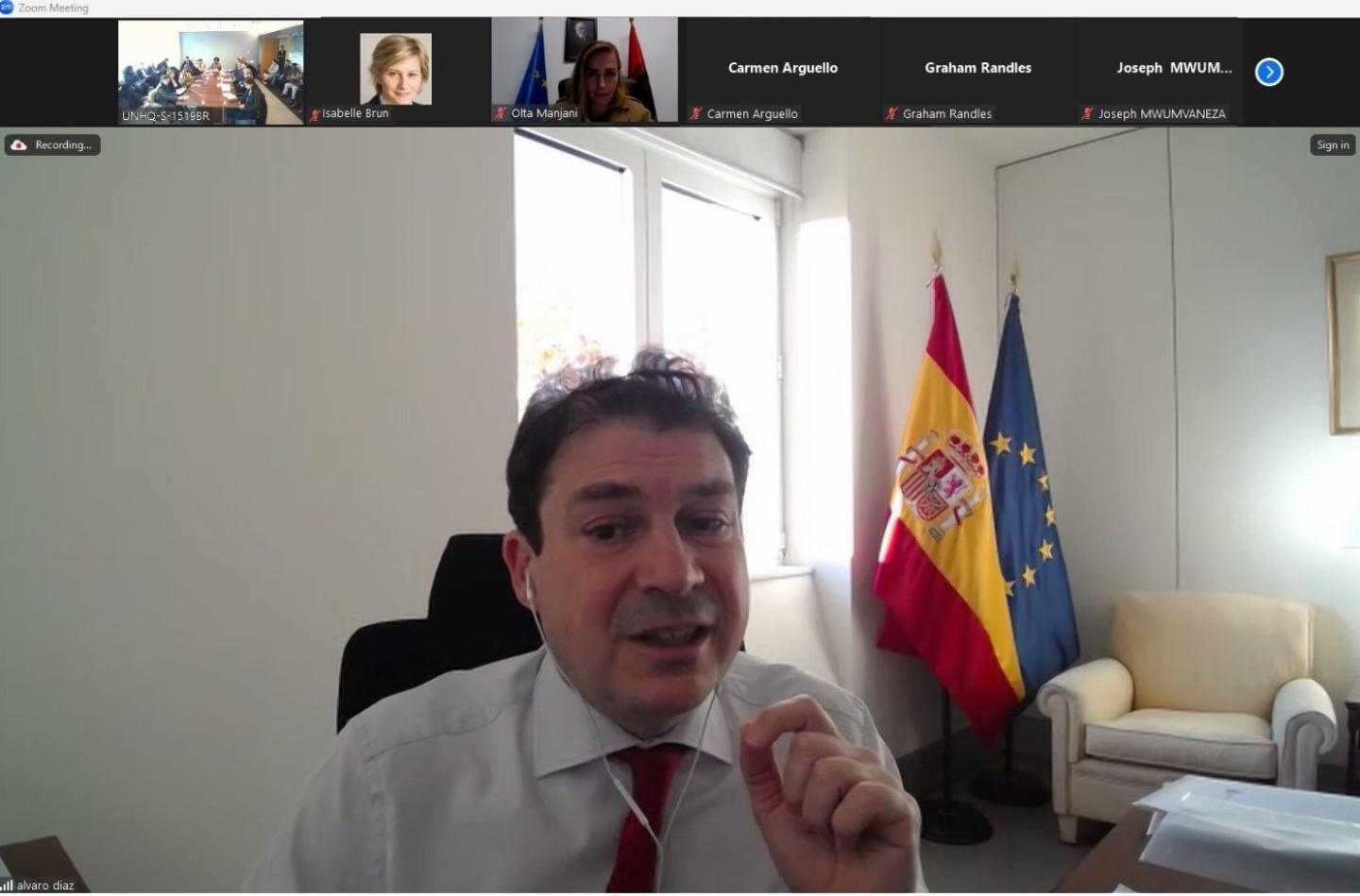
Building on these insights, Mr. Niels Schuett, Head of the Division for Sustainable Development Financing at the German Ministry for Economic Cooperation and Development, emphasized Germany’s commitment to bridging the gaps between UN initiatives and International Financial Institutions (IFIs). He highlighted the Multi-stakeholder Engagement to Implement the Global Accelerator (M-GA), a joint effort by Germany, the ILO, and the World Bank, designed to mobilize resources, foster joint UN/World Bank country-level projects, and facilitate global knowledge sharing. Mr. Schuett explained that the M-GA addresses resource mobilization and multilateral cooperation, bringing innovative projects to life and catalyzing financing from all sources. Germany has contributed €27 million to the initiative, which builds on existing mechanisms like the World Bank’s Rapid Social and the UN Joint SDG Fund, ensuring efficiency without creating new bureaucracies. Mr Schuett, concluding his remarks invited more donors to support the M-GA initiative along with other GA and M-GA donor countries such as Spain, Belgium and Ireland.
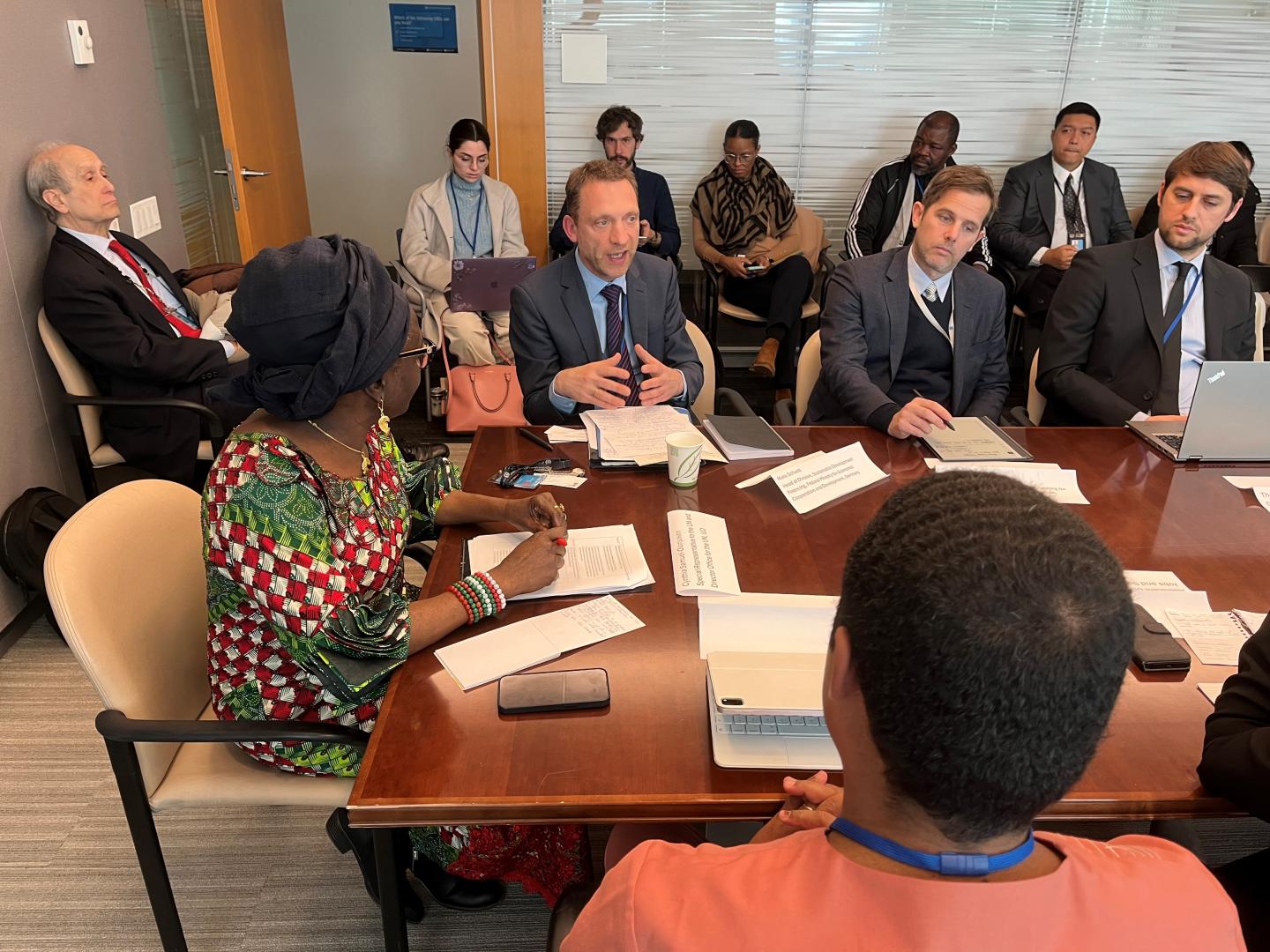
Strengthening social dialogue for inclusive policy and financing
The role of social partners —workers’ and employers’ organizations— in shaping effective policies and financing strategies for decent jobs and social protection was another central theme of the event. Mr. Mahongora Kavihuha, General Secretary of the Trade Union Congress of Namibia, emphasized that workers’ participation is essential to ensure policies reflect realities on the ground. He underscored the importance of meaningful consultation to enhance equity, legitimacy, and accountability in policy implementation. From the employers’ perspective, Ms. Shea Gopaul, Permanent Representative of the International Organisation of Employers (IOE), stressed the need for sustainable, long-term solutions to drive job-rich economic growth. She called for stronger collaboration to address structural barriers like informality, access to finance, and weak institutions, while advocating for smart regulation that supports small and medium enterprises (SMEs), which generate 90 per cent of global jobs. Both speakers reaffirmed that engaging social partners is essential to designing policies and financing mechanisms that are inclusive, implementable, and impactful.
From commitments to action: Embedding social protection and jobs in global financing frameworks
The event concluded with the remarks from Ms. Mia Seppo, ILO Assistant Director-General for Jobs and Social Protection who emphasized the urgency of translating commitments into action, stating, “The national roadmaps demonstrate the power of integrated policies to jointly tackle the financing gap and leverage catalytic investments.”
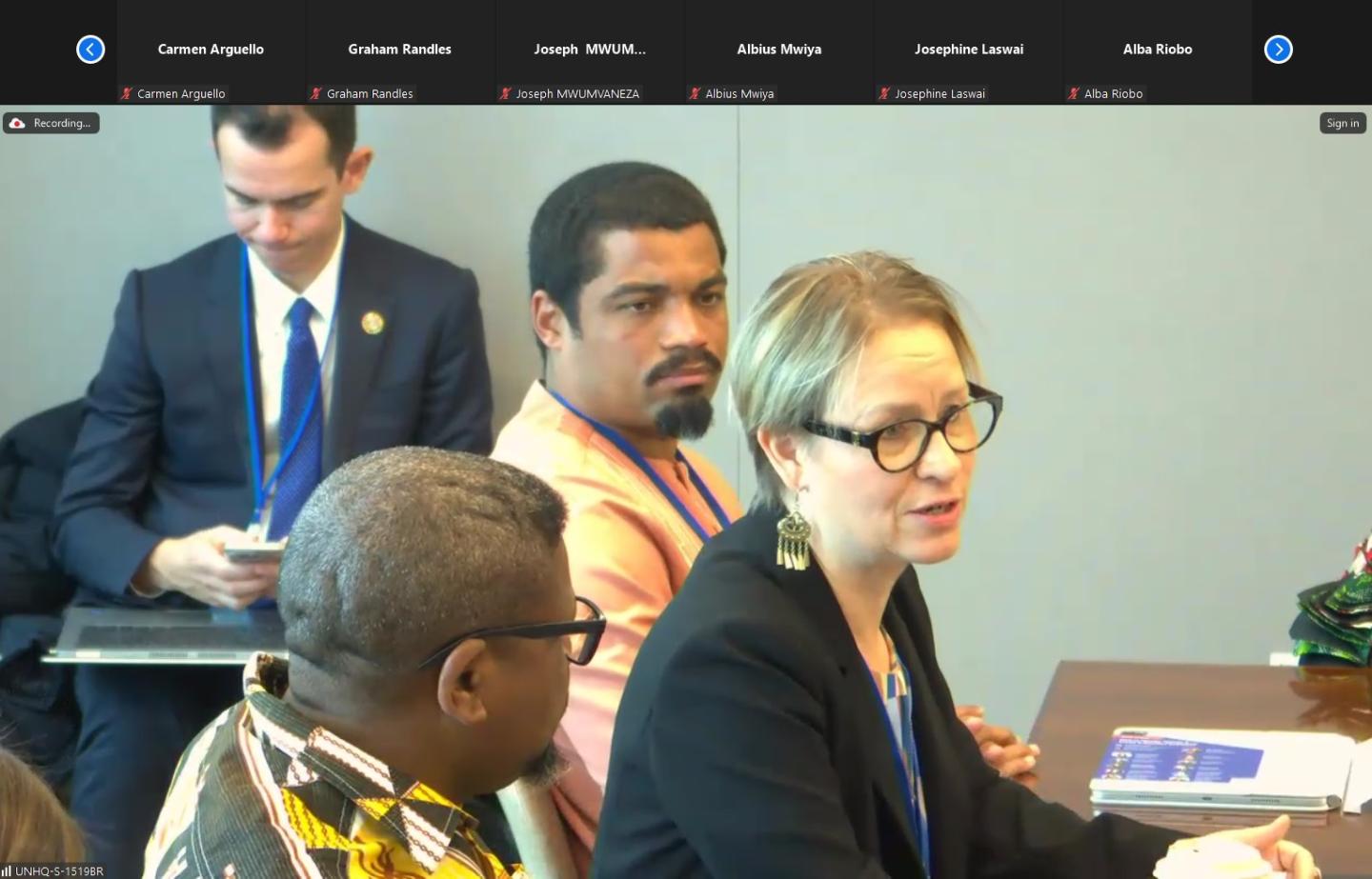
Drawing on the insights shared by the panellists, Ms. Seppo highlighted the need for concrete measures to accelerate progress. She pointed to national ownership, innovative financing solutions, and inclusive partnerships as essential drivers for achieving meaningful results. “The Global Accelerator can support the implementation of the commitments that we hope to see emerge from the FfD4 Outcome document.” she concluded.
As the FfD4 conference approaches, the discussions reaffirmed the critical importance of integrated strategies and collective action to close financing gaps and ensure that social protection and job creation remain central to global development priorities. With strengthened commitments and collaborative efforts, there is hope that no one will be left behind on the path to a sustainable, just, and inclusive future.
Watch
Watch the side event by clicking here.